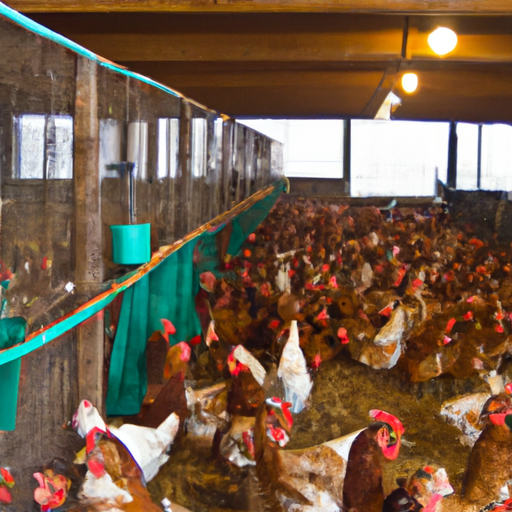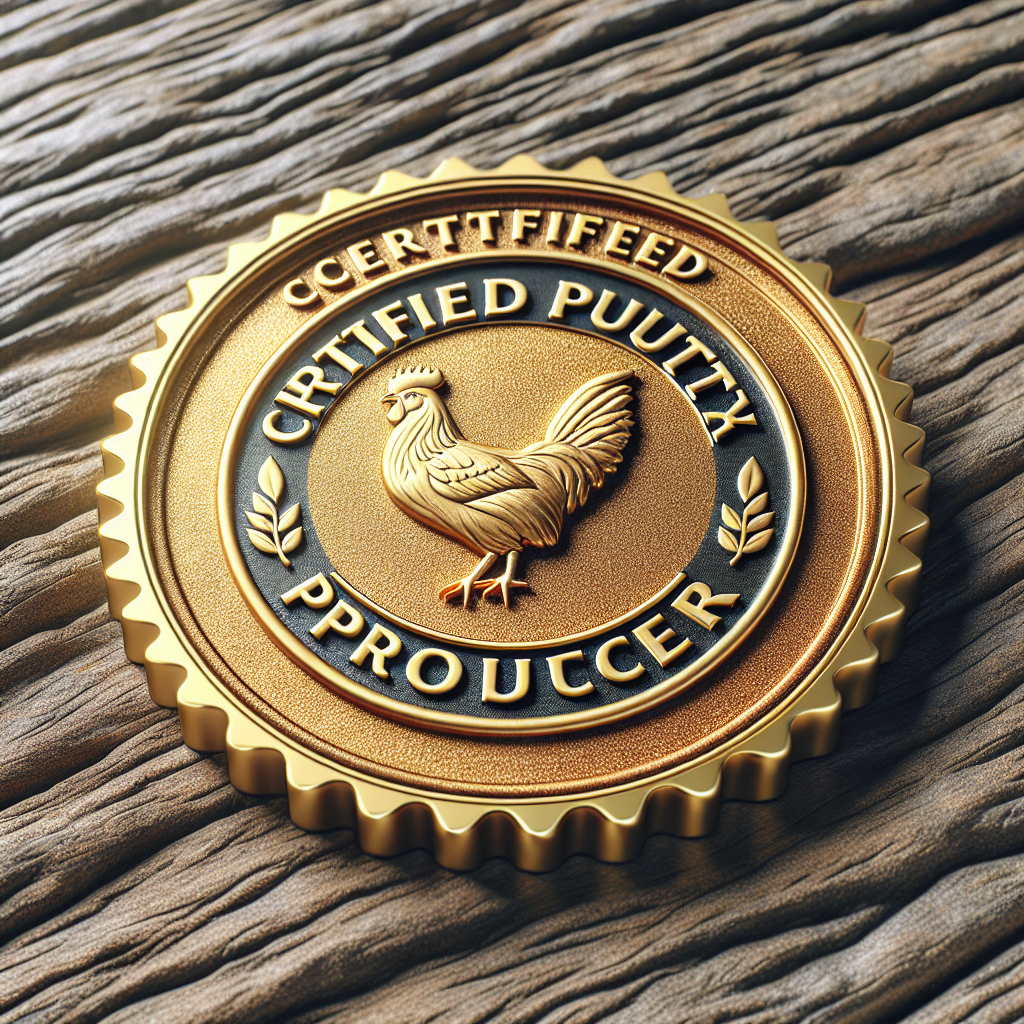Operating a commercial chicken farm may seem like a straightforward endeavor, but have you ever wondered if there are any specific licenses or permits required? Well, the good news is that this article will provide you with all the information you need to know. It’s important to understand the legal requirements and regulations that come with running a chicken farm to ensure compliance and the smooth operation of your business. So, let’s dive right in and explore the world of licenses and permits for a commercial chicken farm.
Licenses and Permits for Operating a Commercial Chicken Farm
Background and Introduction
Operating a commercial chicken farm can be a rewarding and profitable venture. However, before you can begin your poultry business, it is important to understand and comply with the various licenses and permits required by law. These licenses and permits ensure that your farm operates within legal boundaries and adheres to regulations that promote the health and safety of your chickens, the environment, and your employees.
Basic Requirements
When it comes to starting a commercial chicken farm, there are several key licenses and permits you need to obtain. These include:
1. Business Registration and Licensing
First and foremost, you will need to register your poultry business with the appropriate government agency. This usually involves obtaining a business license and registering your farm as a legal entity. The specific requirements and process may vary depending on your location and local laws. It is advisable to consult with a legal professional or government agency specializing in business registration to ensure you meet all the necessary criteria.
2. Zoning and Land Use Permits
Zoning and land use permits are essential for operating a commercial chicken farm. These permits ensure that your farm is located in an area designated for agricultural use and complies with local zoning regulations. Zoning regulations may specify factors such as the permissible size of the farm, distance from residential areas, and compliance with noise restrictions. Contact your local zoning board or planning department to understand the specific requirements for your area.
3. Building and Construction Permits
If you plan to construct or modify any buildings on your chicken farm, you will likely need building and construction permits. These permits ensure that your structures are built to code and meet safety standards. It is recommended to consult with an architect or contractor who is knowledgeable about agricultural construction to ensure compliance with all building regulations.
4. Environmental Permits
Commercial chicken farms can have a significant impact on the environment, particularly in terms of waste management and water usage. Depending on the scale of your operation, you may need to obtain environmental permits to ensure proper waste disposal, manage water runoff, and prevent pollution. These permits are usually issued by state or local environmental agencies and may involve inspections and ongoing compliance monitoring.
5. Health and Safety Regulations
Ensuring the health and safety of your chickens is not only an ethical responsibility but also a legal requirement. You may need to comply with specific health and safety regulations to prevent the spread of diseases and maintain the overall welfare of your flock. This may involve regular veterinary inspections, vaccination protocols, and implementing biosecurity measures. Familiarize yourself with the regulations set forth by relevant agricultural agencies and consult with a veterinarian specializing in poultry health.
6. Water and Irrigation Permits
Water is an essential resource for chicken farming, and depending on your location and water usage, you may need to obtain water and irrigation permits from appropriate authorities. These permits ensure that your water usage is within sustainable limits, preventing overuse and depletion of water resources. Understanding your local water regulations and obtaining the necessary permits will help you operate your farm responsibly and minimize any environmental impact.
7. USDA Certifications
Certifications from the United States Department of Agriculture (USDA) may be required for certain aspects of your commercial chicken farm operation. These certifications ensure that your farm complies with federal standards and regulations, particularly in areas such as food safety, labeling, and quality control. Some common USDA certifications include the National Poultry Improvement Plan (NPIP) certification and the Organic certification. Research the specific certifications applicable to your farm and ensure compliance to access broader markets and establish credibility with customers.
8. Poultry-Specific Permits
In addition to the general licenses and permits mentioned above, there may be poultry-specific permits and certifications required for your commercial chicken farm. These permits can vary based on factors like the scale of your operation, whether you engage in the production of meat or eggs, and the specific breed of chickens you raise. Familiarize yourself with the regulations set forth by poultry industry associations and contact your local agricultural department for information regarding poultry-specific permits that may be applicable to your farm.
9. Employment and Labor Regulations
As an employer, you are responsible for complying with employment and labor regulations. Ensure that you understand your obligations regarding employee wages, working hours, safety standards, and any other applicable labor laws. Consult with a legal professional who specializes in labor laws to ensure your farm adheres to all relevant regulations and maintains a safe and fair working environment for your employees.
10. Sales Tax and Reporting
When operating a commercial chicken farm, it is essential to understand your tax obligations. Depending on your location, you may be required to collect and remit sales tax on the sale of your poultry products. It is recommended to consult with an accountant or tax professional to ensure you understand the specific sales tax requirements in your region. Additionally, maintaining accurate records and submitting timely reports to tax authorities is crucial for compliance with tax laws.
Conclusion
Operating a commercial chicken farm comes with a variety of licenses and permits that you must obtain to ensure compliance with legal requirements. From business registration and zoning permits to environmental and poultry-specific certifications, it is important to familiarize yourself with the necessary licenses and permits for your specific location and farm operation. By adhering to these regulations, you can ensure the health and safety of your chickens, protect the environment, maintain a responsible business, and successfully navigate the complexities of operating a commercial chicken farm.




